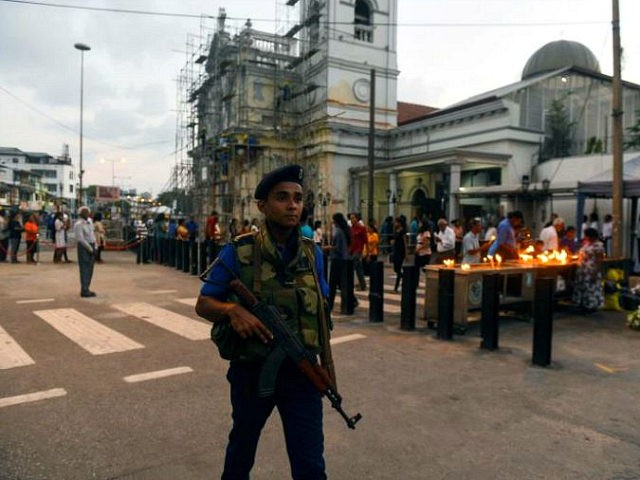Sri Lanka’s current economic crisis will likely endure for at least two more years, the nation’s finance minister, Ali Sabry, told the Sri Lankan parliament on Wednesday, Agence France-Presse (AFP) reported.
“People should know the truth. I don’t know if people realise the gravity of the situation,” Sri Lankan Finance Minister Sabry told the Parliament of the Democratic Socialist Republic of Sri Lanka on May 4.
“We won’t be able to resolve this crisis in two years, but the actions we take today will determine how much longer this problem will drag,” Sabry stated.
AFP paraphrased the finance minister as saying his nation “now has less than $50 million in usable foreign exchange reserves.”
Sabry further acknowledged on Wednesday that Sri Lanka’s government “had erred by delaying an approach to the International Monetary Fund [IMF] for a bailout.”
Sri Lanka’s finance ministry reached out to the IMF in the days leading up to an April 12 announcement revealing it planned to temporarily default on the nation’s foreign debt in an effort to cushion Sri Lanka’s economy against its worst monetary crisis in 70 years. The Finance Ministry of Sri Lanka said in a press release at the time that it had recently “approached the IMF for assistance in designing an economic recovery program and for emergency financial assistance.”
“Negotiations with the IMF are ongoing but Sri Lanka’s central bank chief has said any assistance from the lender is months away,” AFP noted on May 4.
Observers have traced Sri Lanka’s latest economic crisis to a shortage of foreign currency reserves the import-dependent nation traditionally relied upon to purchase vital basic goods. Economic experts have said the Chinese coronavirus pandemic pushed a pre-existing economic downturn in Sri Lanka over the edge, resulting in an overall inability among Sri Lankan traders to pay for crucial imports. The pandemic cut off Sri Lanka — a tropical island nation located in the Indian Ocean — from the tourism revenue and remittances from Sri Lankans abroad that had buoyed Colombo’s economy in past decades.
Sri Lanka’s latest financial buckling began to cause tremors among the island’s populace around early March when widespread food, fuel, and medicine shortages started to upturn citizens’ daily lives. Sri Lankans nationwide, though especially in the national capital of Colombo, staged mass anti-government protests in mid-March that called for the current presidential administration of Gotabaya Rajapaksa to step down. The demonstrations devolved into mob violence and intimidation in some instances, with hundreds of people attempting to storm the personal residence of Sri Lankan President Rajapaksa in Colombo on the night of March 31.
Nearly all of Sri Lanka’s Cabinet resigned on April 3, except for Sri Lankan President Gotabaya Rajapaksa and his brother, Prime Minister Mahinda Rajapaksa. Protests calling for Gotabaya’s ouster have continued in Colombo since early March, with such demonstrations reported as recently as May 5 by Sri Lanka’s Daily Mirror newspaper.

COMMENTS
Please let us know if you're having issues with commenting.